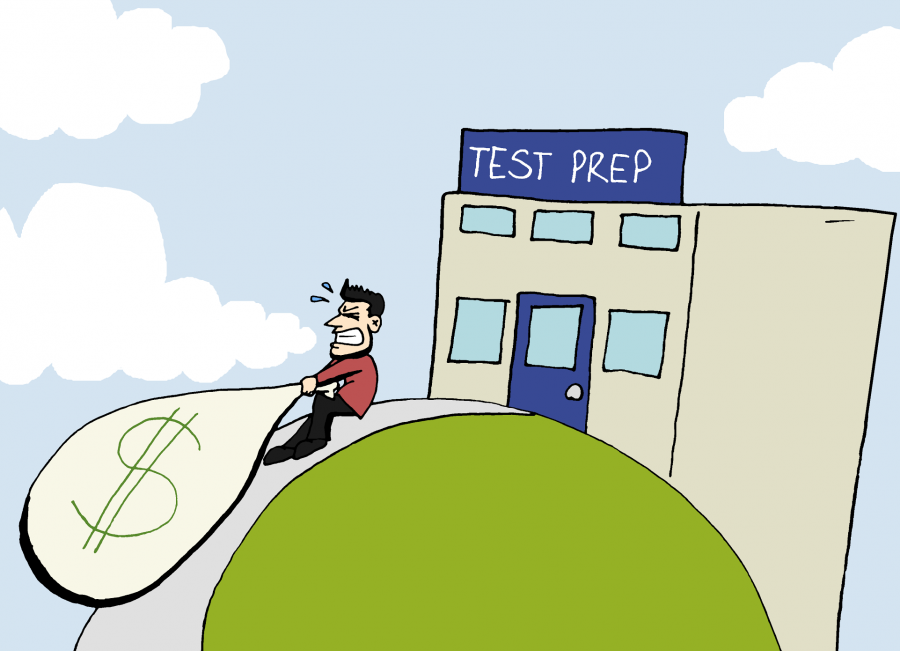Common sights found at the beginning of the semester include, but are not limited to, lanyard-wearing freshman, somber TAs and anxious seniors who are applying to graduate school. Whether these prospective graduate school applicants are applying to medical school or a doctoral chemistry program, their acceptance into their respected program lies between three consecutive integers. A student’s test score is arguably the most important deciding factor in their admission, and it doesn’t come cheap.
Yet there are some students who set themselves apart from the rest and to an extent can be considered a form of privilege. Specifically, test prep privilege where a student has an economic advantage to afford test prep courses compared to those who cannot.
The MCAT, GRE, GMAT and LSAT constitute the four most common standardized tests for graduate school admissions in the United States. The most affordable of which is the LSAT, clocking in at $175 for every prospective law school applicant. Considering the price of the exam and application fees, just applying to graduate school is expensive in and of itself.
Standardized tests have become the norm for college admissions, precisely because it is consistent and efficient. They are designed to serve as “indicators of intellectual and academic potential.” However, these tests are not one-size-fits-all and ultimately, tests such as the SAT and ACT are not good predictors of intelligence.
In a perfect world, these costly exams could have their price justified if they did measure intelligence or other innate attributes that admissions finds valuable in an applicant. Instead, they are good at measuring how well you think and conform to what the test makers want in a prospective student, especially on the LSAT.
Because of this, the greatest flaw of these admissions exams is that they assume that their test-takers come from the same baseline – when in reality, you can learn how to think like the LSAT, or any other admissions test, if you can afford it.
Take the Kaplan LSAT Test Prep courses, for example. On the low end, a student can spend $799 for an online course and up to $2599 for a personal tutor. So a frugal student would be looking at spending just over $1,000 if they were to take a test prep course, including the test and application fees.
All of this equates to test-prep privilege — and I have benefited from this. Walking into my LSAT course, I became sharply attuned to how all of these factors work to benefit me, and I couldn’t help but feel guilty. Guilty for those who dream of going to law school but can’t even afford to take the LSAT. Guilty for those struggling over a test-prep book and learning it on their own. I felt guilty because, in the end, we’re all measured the same in the eyes of the admissions council. They won’t see the advantages that stem from my privilege, but I do.
This isn’t to say that I regret my decision to take an LSAT course, nor to say I haven’t worked hard to improve my score. It’s to differentiate that we all start from different points and especially in the college admissions process, there should be more of an effort to distinguish those differences.
It would be more effective for admissions to realize that an applicant’s LSAT or any other application test score does not necessarily correlate with their potential as a prospective student. Otherwise, admissions would not be able to distinguish between the natural LSAT student and the one who paid a small fortune to seem like one.
Fernandez is a rhetoric and writing and Spanish senior from Allen. She is a senior columnist.





















